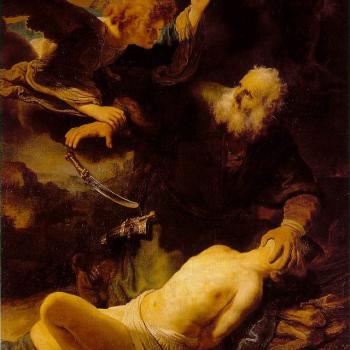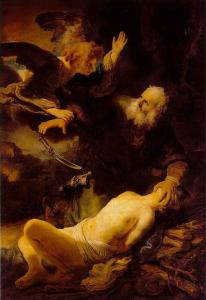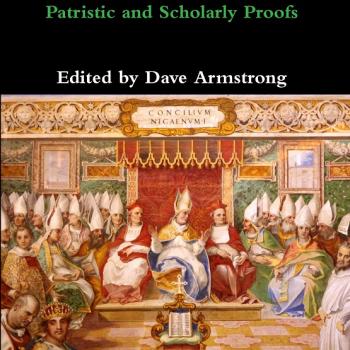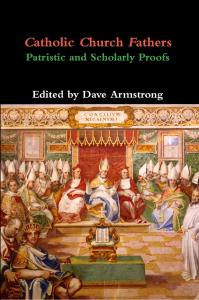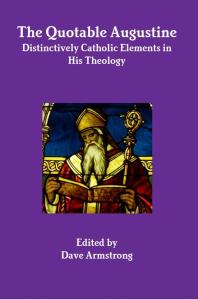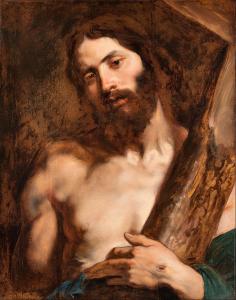THE SACRAMENT OF MATRIMONY / ANALOGY TO CHRIST AND THE CHURCH
Genesis 1:26-28 Then God said, “Let us make man in our image, after our likeness; and let them have dominion over the fish of the sea, and over the birds of the air, and over the cattle, and over all the earth, and over every creeping thing that creeps upon the earth.” So God created man in his own image, in the image of God he created him; male and female he created them. And God blessed them, and God said to them, “Be fruitful and multiply, and fill the earth and subdue it; and have dominion over the fish of the sea and over the birds of the air and over every living thing that moves upon the earth.”
Genesis 2:18-25 Then the LORD God said, “It is not good that the man should be alone; I will make him a helper fit for him.” So out of the ground the LORD God formed every beast of the field and every bird of the air, and brought them to the man to see what he would call them; and whatever the man called every living creature, that was its name. The man gave names to all cattle, and to the birds of the air, and to every beast of the field; but for the man there was not found a helper fit for him. So the LORD God caused a deep sleep to fall upon the man, and while he slept took one of his ribs and closed up its place with flesh; and the rib which the LORD God had taken from the man he made into a woman and brought her to the man. Then the man said, “This at last is bone of my bones and flesh of my flesh; she shall be called Woman, because she was taken out of Man.” Therefore a man leaves his father and his mother and cleaves to his wife, and they become one flesh. And the man and his wife were both naked, and were not ashamed.
The Song of Solomon (the entire book is regarded by most commentators as a parable of God and His Church).
Isaiah 61:10 I will greatly rejoice in the LORD, my soul shall exult in my God; for he has clothed me with the garments of salvation, he has covered me with the robe of righteousness, as a bridegroom decks himself with a garland, and as a bride adorns herself with her jewels.
Isaiah 62:4-5 You shall no more be termed Forsaken, and your land shall no more be termed Desolate; but you shall be called My delight is in her, and your land Married; for the LORD delights in you, and your land shall be married. For as a young man marries a virgin, so shall your sons marry you, and as the bridegroom rejoices over the bride, so shall your God rejoice over you.
Jeremiah 2:2 Go and proclaim in the hearing of Jerusalem, Thus says the LORD, I remember the devotion of your youth, your love as a bride, how you followed me in the wilderness, in a land not sown.
Jeremiah 2:32 Can a maiden forget her ornaments, or a bride her attire? Yet my people have forgotten me days without number.
Matthew 25:10 And while they went to buy, the bridegroom came, and those who were ready went in with him to the marriage feast; and the door was shut.
Luke 5:34 And Jesus said to them, “Can you make wedding guests fast while the bridegroom is with them?” (cf. Mk 2:19-20; Mt 9:15; Jn 2:1-11)
Luke 12:36 and be like men who are waiting for their master to come home from the marriage feast, so that they may open to him at once when he comes and knocks.
John 3:27-29 John answered, “No one can receive anything except what is given him from heaven. You yourselves bear me witness, that I said, I am not the Christ, but I have been sent before him. He who has the bride is the bridegroom; the friend of the bridegroom, who stands and hears him, rejoices greatly at the bridegroom’s voice; therefore this joy of mine is now full.”
1 Corinthians 7:2, 7, 17 But because of the temptation to immorality, each man should have his own wife and each woman her own husband. . . . each has his own special gift from God, one of one kind and one of another. . . . Only, let every one lead the life which the Lord has assigned to him, and in which God has called him. This is my rule in all the churches.
1 Corinthians 7:38 So that he who marries his betrothed does well; and he who refrains from marriage will do better.
2 Corinthians 11:2 I feel a divine jealousy for you, for I betrothed you to Christ to present you as a pure bride to her one husband.
Ephesians 5:22-32 Wives, be subject to your husbands, as to the Lord. For the husband is the head of the wife as Christ is the head of the church, his body, and is himself its Savior. As the church is subject to Christ, so let wives also be subject in everything to their husbands. Husbands, love your wives, as Christ loved the church and gave himself up for her, that he might sanctify her, having cleansed her by the washing of water with the word, that he might present the church to himself in splendor, without spot or wrinkle or any such thing, that she might be holy and without blemish. Even so husbands should love their wives as their own bodies. He who loves his wife loves himself. For no man ever hates his own flesh, but nourishes and cherishes it, as Christ does the church, because we are members of his body. For this reason a man shall leave his father and mother and be joined to his wife, and the two shall become one flesh. This mystery is a profound one, and I am saying that it refers to Christ and the church; (cf. 1 Pet 3:1-9)
1 Timothy 4:1-3 Now the Spirit expressly says that in later times some will depart from the faith by giving heed to deceitful spirits and doctrines of demons, through the pretensions of liars whose consciences are seared, who forbid marriage . . .
Revelation 19:7-9 Let us rejoice and exult and give him the glory, for the marriage of the Lamb has come, and his Bride has made herself ready; it was granted her to be clothed with fine linen, bright and pure — for the fine linen is the righteous deeds of the saints. And the angel said to me, “Write this: Blessed are those who are invited to the marriage supper of the Lamb.” And he said to me, “These are true words of God.”
Revelation 21:2, 9 And I saw the holy city, new Jerusalem, coming down out of heaven from God, prepared as a bride adorned for her husband; . . .Then came one of the seven angels who had the seven bowls full of the seven last plagues, and spoke to me, saying, “Come, I will show you the Bride, the wife of the Lamb.”
Revelation 22:17 The Spirit and the Bride say, “Come.” And let him who hears say, “Come.” And let him who is thirsty come, let him who desires take the water of life without price.
DIVORCE AND THE INDISSOLUBILITY OF MARRIAGE
Exodus 20:14 You shall not commit adultery. (cf. Deut 5:18; Lev 20:10; Mt 19:18; Mk 10:19; Lk 18:20; Rom 13:9; James 2:11)
Proverbs 6:32 He who commits adultery has no sense; he who does it destroys himself. (cf. 6:26; 30:20)
Jeremiah 3:1 If a man divorces his wife and she goes from him and becomes another man’s wife, will he return to her? Would not that land be greatly polluted? . . .
Jeremiah 7:9 Will you steal, murder, commit adultery, swear falsely, burn incense to Ba’al, and go after other gods that you have not known, (cf. 9:2)
Ezekiel 44:22 They shall not marry a widow, or a divorced woman, but only a virgin of the stock of the house of Israel, or a widow who is the widow of a priest.
Hosea 4:14 I will not punish your daughters when they play the harlot, nor your brides when they commit adultery; for the men themselves go aside with harlots, and sacrifice with cult prostitutes, and a people without understanding shall come to ruin.
Malachi 2:16 For I hate divorce, says the LORD the God of Israel, and covering one’s garment with violence, says the LORD of hosts. So take heed to yourselves and do not be faithless.
Malachi 3:5 Then I will draw near to you for judgment; I will be a swift witness against the sorcerers, against the adulterers, against those who swear falsely, against those who oppress the hireling in his wages, the widow and the orphan, against those who thrust aside the sojourner, and do not fear me, says the LORD of hosts.
Wisdom 14:26 confusion over what is good, forgetfulness of favors, pollution of souls, sex perversion, disorder in marriage, adultery, and debauchery.
Sirach 23:23 For first of all, she has disobeyed the law of the Most High; second, she has committed an offense against her husband; and third, she has committed adultery through harlotry and brought forth children by another man. (cf. 25:2)
Matthew 5:27-28 You have heard that it was said, “You shall not commit adultery.” But I say to you that every one who looks at a woman lustfully has already committed adultery with her in his heart.
Matthew 5:31-32 It was also said, “Whoever divorces his wife, let him give her a certificate of divorce.” But I say to you that every one who divorces his wife, except on the ground of unchastity, makes her an adulteress; and whoever marries a divorced woman commits adultery.
Matthew 15:19 For out of the heart come evil thoughts, murder, adultery, fornication, theft, false witness, slander.
Matthew 19:3-11 And Pharisees came up to him and tested him by asking, “Is it lawful to divorce one’s wife for any cause?” He answered, “Have you not read that he who made them from the beginning made them male and female, and said, ‘For this reason a man shall leave his father and mother and be joined to his wife, and the two shall become one flesh’? So they are no longer two but one flesh. What therefore God has joined together, let not man put asunder.” They said to him, “Why then did Moses command one to give a certificate of divorce, and to put her away?” He said to them, “For your hardness of heart Moses allowed you to divorce your wives, but from the beginning it was not so. And I say to you: whoever divorces his wife, except for unchastity, and marries another, commits adultery.” The disciples said to him, “If such is the case of a man with his wife, it is not expedient to marry.” But he said to them, “Not all men can receive this saying, but only those to whom it is given.”
The Greek word for unchastity in Matthew 5:32 and 19:9 is porneia: defined in standard Greek lexicons as “unlawful sexual intercourse.” Jesus is contrasting a true marriage, with a cohabitation, concubinage or some other illicit union (cf. 1 Corinthians 5:1). If there is not truly a marriage present, then a separation can take place, but it is no “divorce” because it was no marriage to begin with.
These passages can’t be used to justify divorce as a result of an occurrence of adultery of the partner, because the usual Greek word for adultery (moicheia) is not used, as it is in many other places (thirty-five times in one of its forms).
The Greek word porneia and its cognates are never translated in the KJV New Testament as “adultery” but as “fornication” or “fornicator” (thirty-nine times), “harlot” (eight times), “whore” (four), and “whoremonger” (five). Likewise, every variant of the English fornication in the KJV is always a translation of some form of porneia.
The same holds true for adultery and its variants; they are always translations of some form of moicheia (and these are never translated as anything other than “adultery”). We also find the two Greek words distinguished from each other in the same verse (Mt. 5:19; Mk 7:21; Gal. 5:19).
Mark 10:2-12 And Pharisees came up and in order to test him asked, “Is it lawful for a man to divorce his wife?” He answered them, “What did Moses command you?” They said, “Moses allowed a man to write a certificate of divorce, and to put her away.” But Jesus said to them, “For your hardness of heart he wrote you this commandment. But from the beginning of creation, ‘God made them male and female.’ ‘For this reason a man shall leave his father and mother and be joined to his wife, and the two shall become one flesh.’ So they are no longer two but one flesh. What therefore God has joined together, let not man put asunder.” And in the house the disciples asked him again about this matter. And he said to them, “Whoever divorces his wife and marries another, commits adultery against her; and if she divorces her husband and marries another, she commits adultery.”
Luke 16:18 Every one who divorces his wife and marries another commits adultery, and he who marries a woman divorced from her husband commits adultery.
Romans 2:22 You who say that one must not commit adultery, do you commit adultery? You who abhor idols, do you rob temples?
Romans 7:1-3 Do you not know, brethren — for I am speaking to those who know the law — that the law is binding on a person only during his life? Thus a married woman is bound by law to her husband as long as he lives; but if her husband dies she is discharged from the law concerning the husband. Accordingly, she will be called an adulteress if she lives with another man while her husband is alive. But if her husband dies she is free from that law, and if she marries another man she is not an adulteress.
1 Corinthians 6:9 Do you not know that the unrighteous will not inherit the kingdom of God? Do not be deceived; neither the immoral, nor idolaters, nor adulterers, nor sexual perverts,
1 Corinthians 7:3-5, 10-15 The husband should give to his wife her conjugal rights, and likewise the wife to her husband. For the wife does not rule over her own body, but the husband does; likewise the husband does not rule over his own body, but the wife does. Do not refuse one another except perhaps by agreement for a season, that you may devote yourselves to prayer; but then come together again, lest Satan tempt you through lack of self-control. . . . To the married I give charge, not I but the Lord, that the wife should not separate from her husband (but if she does, let her remain single or else be reconciled to her husband) — and that the husband should not divorce his wife. To the rest I say, not the Lord, that if any brother has a wife who is an unbeliever, and she consents to live with him, he should not divorce her. If any woman has a husband who is an unbeliever, and he consents to live with her, she should not divorce him. For the unbelieving husband is consecrated through his wife, and the unbelieving wife is consecrated through her husband. Otherwise, your children would be unclean, but as it is they are holy. But if the unbelieving partner desires to separate, let it be so; in such a case the brother or sister is not bound. For God has called us to peace.
1 Corinthians 7:27, 39 Are you bound to a wife? Do not seek to be free. . . . A wife is bound to her husband as long as he lives. If the husband dies, she is free to be married to whom she wishes, only in the Lord.
Hebrews 13:4 Let marriage be held in honor among all, and let the marriage bed be undefiled; for God will judge the immoral and adulterous.
2 Peter 2:14 They have eyes full of adultery, insatiable for sin. They entice unsteady souls. They have hearts trained in greed. Accursed children!
PREMARITAL SEX AND COHABITATION
Exodus 22:16 If a man seduces a virgin who is not betrothed, and lies with her, he shall give the marriage present for her, and make her his wife.
Leviticus 21:13-15 And he shall take a wife in her virginity. A widow, or one divorced, or a woman who has been defiled, or a harlot, these he shall not marry; but he shall take to wife a virgin of his own people, that he may not profane his children among his people; for I am the LORD who sanctify him.
Deuteronomy 22:28-29 If a man meets a virgin who is not betrothed, and seizes her and lies with her, and they are found, then the man who lay with her shall give to the father of the young woman fifty shekels of silver, and she shall be his wife, because he has violated her; he may not put her away all his days.
Hosea 4:14 I will not punish your daughters when they play the harlot, nor your brides when they commit adultery; for the men themselves go aside with harlots, and sacrifice with cult prostitutes, and a people without understanding shall come to ruin.
Sirach 23:17-19 To a fornicator all bread tastes sweet; he will never cease until he dies. A man who breaks his marriage vows says to himself, “Who sees me? Darkness surrounds me, and the walls hide me, and no one sees me. Why should I fear? The Most High will not take notice of my sins.” His fear is confined to the eyes of men, and he does not realize that the eyes of the Lord are ten thousand times brighter than the sun; they look upon all the ways of men, and perceive even the hidden places.
Mark 7:21 For from within, out of the heart of man, come evil thoughts, fornication, theft, murder, adultery,
1 Corinthians 6:18 Shun immorality. Every other sin which a man commits is outside the body; but the immoral man sins against his own body.
1 Corinthians 7:1-2, 9 Now concerning the matters about which you wrote. It is well for a man not to touch a woman. But because of the temptation to immorality, each man should have his own wife and each woman her own husband. . . . But if they cannot exercise self-control, they should marry. For it is better to marry than to be aflame with passion.
1 Corinthians 7:36 If any one thinks that he is not behaving properly toward his betrothed, if his passions are strong, and it has to be, let him do as he wishes: let them marry — it is no sin.
1 Corinthians 10:8 We must not indulge in immorality as some of them did, and twenty-three thousand fell in a single day.
2 Corinthians 12:21 I fear that when I come again my God may humble me before you, and I may have to mourn over many of those who sinned before and have not repented of the impurity, immorality, and licentiousness which they have practiced.
Galatians 5:19 Now the works of the flesh are plain: fornication, impurity, licentiousness,
Ephesians 5:3, 5 But fornication and all impurity or covetousness must not even be named among you, as is fitting among saints. Be sure of this, that no fornicator or impure man, or one who is covetous (that is, an idolater), has any inheritance in the kingdom of Christ and of God.
Colossians 3:5 Put to death therefore what is earthly in you: fornication, impurity, passion, evil desire, and covetousness, which is idolatry.
1 Timothy 1:10 immoral persons, sodomites, kidnapers, liars, perjurers, and whatever else is contrary to sound doctrine,
Jude 1:7 just as Sodom and Gomor’rah and the surrounding cities, which likewise acted immorally and indulged in unnatural lust, serve as an example by undergoing a punishment of eternal fire.
Revelation 9:21 nor did they repent of their murders or their sorceries or their immorality or their thefts.
Revelation 21:8 But as for the cowardly, the faithless, the polluted, as for murderers, fornicators, sorcerers, idolaters, and all liars, their lot shall be in the lake that burns with fire and sulphur, which is the second death.
Revelation 22:15 Outside are the dogs and sorcerers and fornicators and murderers and idolaters, and every one who loves and practices falsehood.
ANNULMENTS
An annulment is not a “Catholic divorce.” It’s a declaration by the Church that a valid, sacramental marriage was never present (because several necessary conditions were not met: for example, insufficiently free will, truthfulness of both parties, mental health, deliberate decision not to bear children, etc.). A similar distinction is found in civil law in many countries. The Old Testament dichotomy between a concubine and a wife is similar to the distinction between civil and sacramental marriage:
Genesis 21:10, 14 So she said to Abraham, “Cast out this slave woman with her son; for the son of this slave woman shall not be heir with my son Isaac.” . . . So Abraham rose early in the morning, and took bread and a skin of water, and gave it to Hagar, putting it on her shoulder, along with the child, and sent her away. . . .
Judges 8:31 And his concubine who was in Shechem also bore him a son, . . .
Likewise, in Ezra, we read that many Israelites “sent away” the “foreign women” they had married, not simply because they were foreigners, but because they caused them to become corrupted by false religions and idolatry. This was essentially an annulment, as opposed to a divorce:
Ezra 9:14 shall we break thy commandments again and intermarry with the peoples who practice these abominations? . . . (cf. 9:1-2)
Ezra 10:2-3, 10-14, 19 . . . We have broken faith with our God and have married foreign women from the peoples of the land, but even now there is hope for Israel in spite of this. Therefore let us make a covenant with our God to put away all these wives and their children, according to the counsel of my lord and of those who tremble at the commandment of our God; and let it be done according to the law. . . . And Ezra the priest stood up and said to them, “You have trespassed and married foreign women, and so increased the guilt of Israel. Now then make confession to the LORD the God of your fathers, and do his will; separate yourselves from the peoples of the land and from the foreign wives.” Then all the assembly answered with a loud voice, “It is so; we must do as you have said. . . . we have greatly transgressed in this matter. Let our officials stand for the whole assembly; let all in our cities who have taken foreign wives come at appointed times, and with them the elders and judges of every city, till the fierce wrath of our God over this matter be averted from us.” . . . They pledged themselves to put away their wives, and their guilt offering was a ram of the flock for their guilt.
Nehemiah 13:26-27 Did not Solomon king of Israel sin on account of such women? Among the many nations there was no king like him, and he was beloved by his God, and God made him king over all Israel; nevertheless foreign women made even him to sin. Shall we then listen to you and do all this great evil and act treacherously against our God by marrying foreign women?
Matthew 5:32 But I say to you that every one who divorces his wife, except on the ground of unchastity, makes her an adulteress; and whoever marries a divorced woman commits adultery.
Matthew 19:9 And I say to you: whoever divorces his wife, except for unchastity, and marries another, commits adultery.
The preceding two verses also apply to annulment situations, insofar as it is determined that a marriage never existed, and it was a state of immoral fornication instead; thus making it a situation having nothing to do with divorce, since no true sacramental marriage is involved. One can even become “one flesh” with a prostitute (1 Corinthians 6:16), but obviously that does not constitute a marriage, let alone a sacramental one.
1 Corinthians 7:15 But if the unbelieving partner desires to separate, let it be so; in such a case the brother or sister is not bound. For God has called us to peace.
The “Pauline privilege” is an example of a situation that precisely fits a certain type of annulment (and the Church has always accepted it because it is so clearly taught in Holy Scripture, here).
HOMOSEXUALITY
Genesis 19:4-7 But before they lay down, the men of the city, the men of Sodom, both young and old, all the people to the last man, surrounded the house; and they called to Lot, “Where are the men who came to you tonight? Bring them out to us, that we may know them.” Lot went out of the door to the men, shut the door after him, and said, “I beg you, my brothers, do not act so wickedly.”
Leviticus 18:20-30 And you shall not lie carnally with your neighbor’s wife, and defile yourself with her. You shall not give any of your children to devote them by fire to Molech, and so profane the name of your God: I am the LORD. You shall not lie with a male as with a woman; it is an abomination. And you shall not lie with any beast and defile yourself with it, neither shall any woman give herself to a beast to lie with it: it is perversion. “Do not defile yourselves by any of these things, for by all these the nations I am casting out before you defiled themselves; and the land became defiled, so that I punished its iniquity, and the land vomited out its inhabitants. But you shall keep my statutes and my ordinances and do none of these abominations, either the native or the stranger who sojourns among you (for all of these abominations the men of the land did, who were before you, so that the land became defiled); lest the land vomit you out, when you defile it, as it vomited out the nation that was before you. For whoever shall do any of these abominations, the persons that do them shall be cut off from among their people. So keep my charge never to practice any of these abominable customs which were practiced before you, and never to defile yourselves by them: I am the LORD your God.”
Leviticus 20:13 If a man lies with a male as with a woman, both of them have committed an abomination; they shall be put to death, their blood is upon them.
Deuteronomy 23:17 There shall be no cult prostitute of the daughters of Israel, neither shall there be a cult prostitute of the sons of Israel.
Judges 19:22-23 . . . behold, the men of the city, base fellows, beset the house round about, beating on the door; and they said to the old man, the master of the house, “Bring out the man who came into your house, that we may know him.” And the man, the master of the house, went out to them and said to them, “No, my brethren, do not act so wickedly; seeing that this man has come into my house, do not do this vile thing.”
1 Kings 14:24 and there were also male cult prostitutes in the land. They did according to all the abominations of the nations which the LORD drove out before the people of Israel.
1 Kings 15:11-12 And Asa did what was right in the eyes of the LORD, as David his father had done. He put away the male cult prostitutes out of the land, and removed all the idols that his fathers had made. (cf. 2 Ki 23:7)
1 Kings 22:42-43, 46 Jehosh’aphat was thirty-five years old when he began to reign, . . . He walked in all the way of Asa his father; he did not turn aside from it, doing what was right in the sight of the LORD; yet the high places were not taken away, and the people still sacrificed and burned incense on the high places. . . . And the remnant of the male cult prostitutes who remained in the days of his father Asa, he exterminated from the land.
Romans 1:24-27 Therefore God gave them up in the lusts of their hearts to impurity, to the dishonoring of their bodies among themselves, because they exchanged the truth about God for a lie and worshiped and served the creature rather than the Creator, who is blessed for ever! Amen. For this reason God gave them up to dishonorable passions. Their women exchanged natural relations for unnatural, and the men likewise gave up natural relations with women and were consumed with passion for one another, men committing shameless acts with men and receiving in their own persons the due penalty for their error.
1 Timothy 1:8-11 Now we know that the law is good, if any one uses it lawfully, understanding this, that the law is not laid down for the just but for the lawless and disobedient, for the ungodly and sinners, for the unholy and profane, for murderers of fathers and murderers of mothers, for manslayers, immoral persons, sodomites, kidnapers, liars, perjurers, and whatever else is contrary to sound doctrine, in accordance with the glorious gospel of the blessed God with which I have been entrusted.
2 Peter 2:4-8 For if God did not spare the angels when they sinned, but cast them into hell and committed them to pits of nether gloom to be kept until the judgment; if he did not spare the ancient world, but preserved Noah, a herald of righteousness, with seven other persons, when he brought a flood upon the world of the ungodly; if by turning the cities of Sodom and Gomor’rah to ashes he condemned them to extinction and made them an example to those who were to be ungodly; and if he rescued righteous Lot, greatly distressed by the licentiousness of the wicked (for by what that righteous man saw and heard as he lived among them, he was vexed in his righteous soul day after day with their lawless deeds),
Jude 1:7: just as Sodom and Gomor’rah and the surrounding cities, which likewise acted immorally and indulged in unnatural lust, serve as an example by undergoing a punishment of eternal fire.
God doesn’t change. If He states that something is sinful and never permissible, then that prohibition applies at all times. Secondly, it isn’t true that the Bible only condemns homosexual rape and not such acts by mutual consent (as is often argued today). Most of the passages above (more than enough!) condemn consensual homosexual acts. Jude 7 mentions “unnatural lust” and 2 Peter 2:4-10 states similarly. Therefore, this objection collapses.
As for the desire itself, Catholics don’t believe it is inherently sinful, as long as it isn’t acted upon (Catechism of the Catholic Church, #2358-59), just as heterosexual lust, fornication, and adultery must be rejected in the will, by God’s grace, in order to avoid sin. Everyone has more than enough temptations to resist and overcome.
St. Paul in Romans 1 makes an explicit argument against homosexuality, as an unnatural practice; he also presents a similar argument in 1 Corinthians 6:12-20, by stating that excessive appetite for sex (and also food?) amounts to being “enslaved” (6:12). There is a created reality and natural order beyond mere physical pleasure, which must not be violated. Certain things are wrong by their very nature. Sex outside of marriage — whether heterosexual or homosexual — belongs to that category (6:18-20). Paul casually assumes that sodomy is intrinsically wrong in 1 Timothy 1:8-11, as he does in Romans 1:24-27: “dishonorable passions,” “unnatural [relations],” “men committing shameless acts with men,” etc.
There is also indirect indication of Jesus’ acceptance of the traditional Jewish prohibition of homosexual acts, or sodomy, in His approval of the judgment of Sodom (Mt 10:15; 11:23-24; Lk 10:12; 17:29). And what did Jesus think of the Mosaic Law?:
Matthew 5:17-19 Think not that I have come to abolish the law and the prophets; I have come not to abolish them but to fulfil them. For truly, I say to you, till heaven and earth pass away, not an iota, not a dot, will pass from the law until all is accomplished. Whoever then relaxes one of the least of these commandments and teaches men so, shall be called least in the kingdom of heaven; but he who does them and teaches them shall be called great in the kingdom of heaven. (cf. Mt 7:12; 22:40; Lk 16:17)
Matthew 23:2-3 The scribes and the Pharisees sit on Moses’ seat; so practice and observe whatever they tell you, but not what they do; for they preach, but do not practice. (cf. Mt 23:23)
Jesus observed the Law in its entirety. He worshiped in synagogues and the Temple; He observed the Jewish feasts (the Last Supper was a Passover dinner: Mt 26:17-19; Mk 14:12-16; Lk 22:7-15). He casually made reference to the authority of Moses over His own disciples (Mt 8:4; Mk 1:44; 7:8-13; Lk 16:31; 24:44; Jn 5:46; 7:19-23). There is no indication that He disputed any of these received laws. Therefore, He accepted as part of the whole, the injunctions against homosexual acts.
CONTRACEPTION
Genesis 38:8-10 Then Judah said to Onan, “Go in to your brother’s wife, and perform the duty of a brother-in-law to her, and raise up offspring for your brother.” But Onan knew that the offspring would not be his; so when he went in to his brother’s wife he spilled the semen on the ground, lest he should give offspring to his brother. And what he did was displeasing in the sight of the LORD, and he slew him also.
This involved what is known as the “levirate law”: the duty to produce offspring with the wife of a dead brother. But this is not why God killed Onan, since the penalty for that was public humiliation and shunning, not death (Deut 25:5-10). Context also supports this interpretation, since immediately after this (Gen. 38:11-26), is the story of Onan’s father Judah refusing to enforce the law and allow his other son, Shelah to produce a child with Tamar, his daughter-in-law. He was afraid that Shelah would be killed like Onan and his other wicked son, Er (38:7, 11). Judah acknowledges his sin in 38:26: “She is more righteous than I, inasmuch as I did not give her to my son Shelah.” He wasn’t killed, so it is unreasonable to contend that Onan was judged and killed by God for the very same sin that Judah committed (in the same passage). Onan was judged for contraception (sex with the deliberate intent to unnaturally prevent procreation).
There are a host of other biblical passages which exalt fertility and the blessing of many children, and the curse of none. Married couples are to “be fruitful and multiply”; this is a blessing:
Genesis 1:28 And God blessed them, and God said to them, “Be fruitful and multiply, . . .” (cf. 9:1,7)
Genesis 28:3 God Almighty bless you and make you fruitful and multiply you, that you may become a company of peoples.
Genesis 35:11 And God said to him, “I am God Almighty: be fruitful and multiply; a nation and a company of nations shall come from you, and kings shall spring from you.” (cf. Dan 3:35-36)
Deuteronomy 7:13-14 he will love you, bless you, and multiply you; he will also bless the fruit of your body and the fruit of your ground, your grain and your wine and your oil, the increase of your cattle and the young of your flock, in the land which he swore to your fathers to give you. You shall be blessed above all peoples; there shall not be male or female barren among you, or among your cattle.
Psalm 107:38 By his blessing they multiply greatly; . . . (cf. Is 48:18-19; Jer 29:6; 30:19-20; 33:22; Ezek 36:10-12; Bar 2:34)
Psalm 115:14 May the LORD give you increase, you and your children! (cf. 105:24)
Psalm 128:3-4 Your wife will be like a fruitful vine within your house; your children will be like olive shoots around your table. Lo, thus shall the man be blessed who fears the LORD.
Proverbs 17:6 Grandchildren are the crown of the aged, and the glory of sons is their fathers. (cf. 11:30; Sir 44:13, 21)
Barrenness is contrary to blessing and “glory”:
Exodus 23:25-26 You shall serve the LORD your God, and I will bless your bread and your water; and I will take sickness away from the midst of you. None shall cast her young or be barren in your land; . . .
Jeremiah 18:21 Therefore deliver up their children to famine; give them over to the power of the sword, let their wives become childless and widowed. . . .
Hosea 9:11 E’phraim’s glory shall fly away like a bird — no birth, no pregnancy, no conception!
Procreation is central to marriage:
Malachi 2:14-15 You ask, “Why does he not?” Because the LORD was witness to the covenant between you and the wife of your youth, to whom you have been faithless, though she is your companion and your wife by covenant. Has not the one God made and sustained for us the spirit of life? And what does he desire? Godly offspring. So take heed to yourselves, and let none be faithless to the wife of his youth.
Childbearing is so sacred that women are even said to be “saved” by it:
1 Timothy 2:15 Yet woman will be saved through bearing children, if she continues in faith and love and holiness, with modesty.
It is God Who opens and closes wombs and causes a conception to occur:
Genesis 20:17-18 Then Abraham prayed to God; and God healed Abim’elech, and also healed his wife and female slaves so that they bore children. For the LORD had closed all the wombs of the house of Abim’elech because of Sarah, Abraham’s wife.
Genesis 29:31 When the LORD saw that Leah was hated, he opened her womb; but Rachel was barren.
Genesis 30:2, 22-24 Jacob’s anger was kindled against Rachel, and he said, “Am I in the place of God, who has withheld from you the fruit of the womb?” . . . Then God remembered Rachel, and God hearkened to her and opened her womb. She conceived and bore a son, and said, “God has taken away my reproach”; and she called his name Joseph, saying, “May the LORD add to me another son!”
Exodus 1:21 And because the midwives feared God he gave them families.
Joshua 24:3 Then I took your father Abraham from beyond the River and led him through all the land of Canaan, and made his offspring many. I gave him Isaac;
Ruth 4:13 So Bo’az took Ruth and she became his wife; and he went in to her, and the LORD gave her conception, and she bore a son.
1 Samuel 1:5 and, although he loved Hannah, he would give Hannah only one portion, because the LORD had closed her womb.
Job 10:8, 11 Thy hands fashioned and made me; and now thou dost turn about and destroy me. . . . Thou didst clothe me with skin and flesh, and knit me together with bones and sinews. (cf. 12:10)
Job 31:15 Did not he who made me in the womb make him? And did not one fashion us in the womb?
Psalm 113:9 He gives the barren woman a home, making her the joyous mother of children. Praise the LORD!
Ecclesiastes 11:5 As you do not know how the spirit comes to the bones in the womb of a woman with child, so you do not know the work of God who makes everything.
Isaiah 44:2 Thus says the LORD who made you, who formed you from the womb and will help you: . . . (cf. 44:24; 54:1-3; Ezek 36:37; 2 Mac 7:22-23)
Children are a gift from God and a blessing:
Genesis 17:16, 20 I will bless her, and moreover I will give you a son by her; I will bless her, and she shall be a mother of nations; kings of peoples shall come from her . . . As for Ish’mael, I have heard you; behold, I will bless him and make him fruitful and multiply him exceedingly; he shall be the father of twelve princes, and I will make him a great nation. (cf. Deut 30:9, 15-16; Is 51:2)
Genesis 29:32-33 And Leah conceived and bore a son, and she called his name Reuben; for she said, “Because the LORD has looked upon my affliction; surely now my husband will love me.” She conceived again and bore a son, and said, “Because the LORD has heard that I am hated, he has given me this son also”; and she called his name Simeon.
Genesis 33:5 And when Esau raised his eyes and saw the women and children, he said, “Who are these with you?” Jacob said, “The children whom God has graciously given your servant.”
1 Chronicles 25:5 “All these were the sons of Heman the king’s seer, according to the promise of God to exalt him; for God had given Heman fourteen sons and three daughters.”
Psalm 127:3-5 Lo, sons are a heritage from the LORD, the fruit of the womb a reward. Like arrows in the hand of a warrior are the sons of one’s youth. Happy is the man who has his quiver full of them! . . . (cf. 72:16; 113:9)
Tobit 4:12 . . . Remember, my son, that Noah, Abraham, Isaac, and Jacob, our fathers of old, all took wives from among their brethren. They were blessed in their children, and their posterity will inherit the land. (cf. Sir 25:7)


